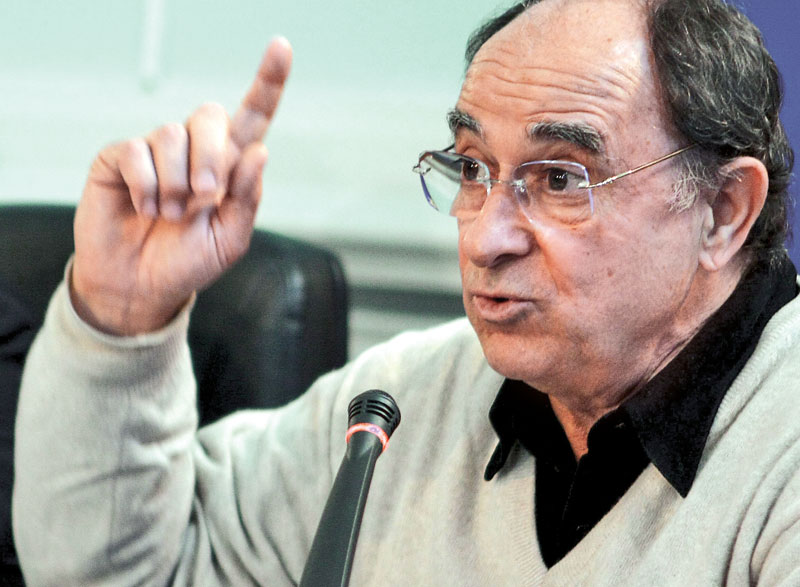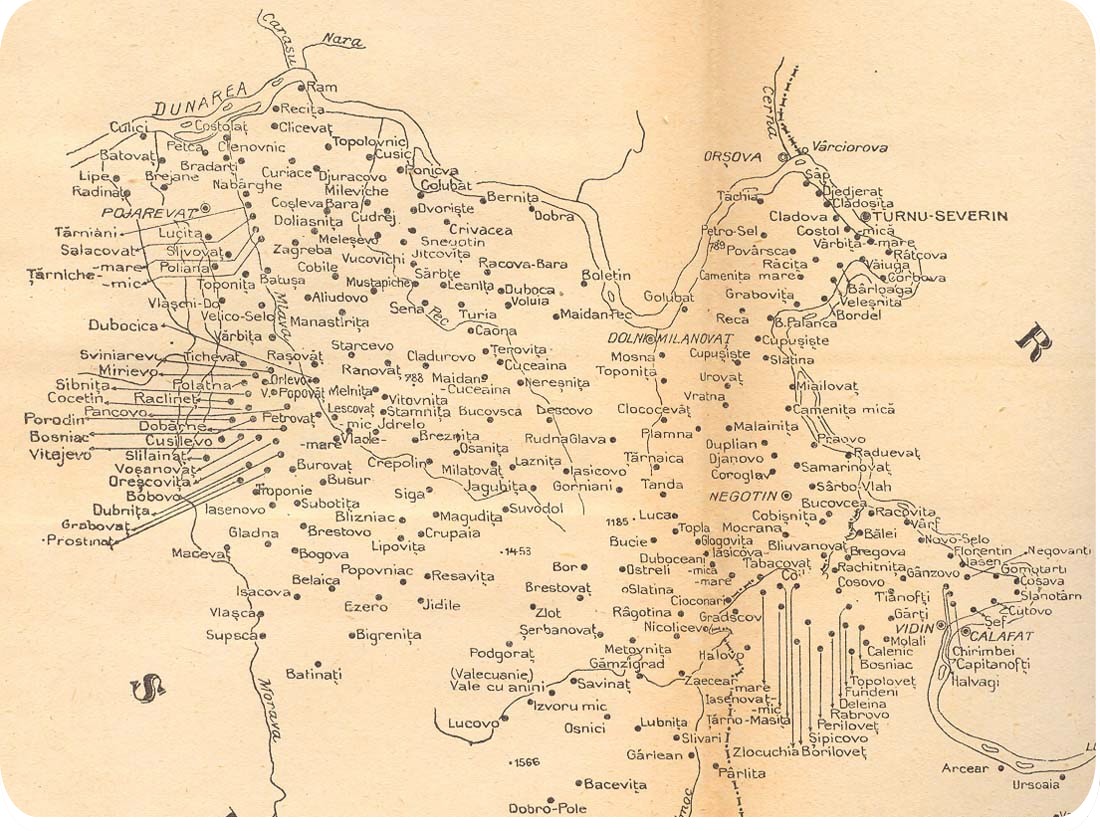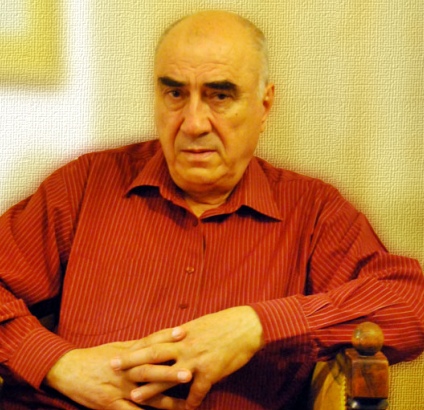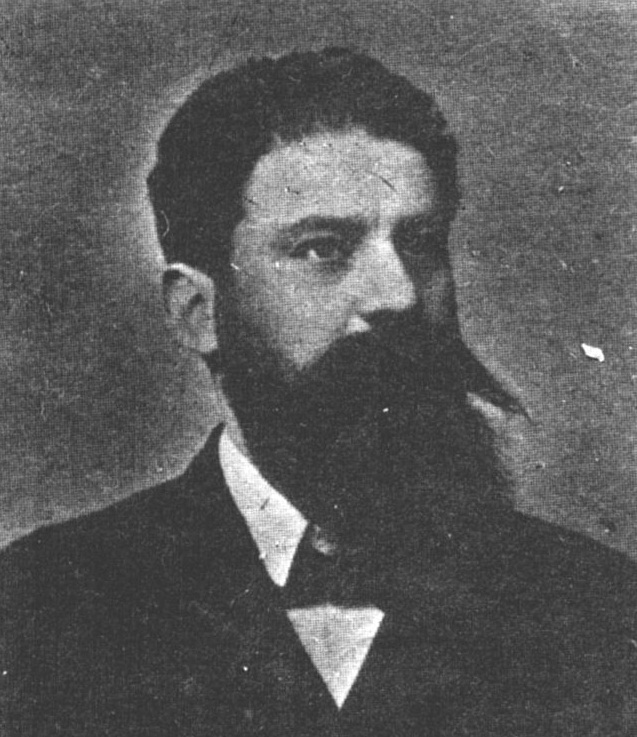 Cei ce argumentează în favoarea distributismului îi vor cita deseori pe Papa Leon III, Dorothy Day ori G.K. Chesterton. Acestea sunt numele către care m-am întors eu însumi când am aflat despre această filosofie. În timp, am început a mă întreba dacă nu este cu putinţă a găsi un pod între aceste faruri luminoase occidentale şi Biserica Ortodoxă. Nu pentru a diminua rădăcinile catolice ale distributismului, ci pentru a-l articula în aşa fel încât să poată fi apreciat şi înţeles de către creştinii-ortodocşi ce au nevoie de o alternativă la sistemele economice materialiste de astăzi. Chiar dacă aceasta poate părea o judecată dură, trebuie remarcat că nu eu sunt autorul ei.
Cei ce argumentează în favoarea distributismului îi vor cita deseori pe Papa Leon III, Dorothy Day ori G.K. Chesterton. Acestea sunt numele către care m-am întors eu însumi când am aflat despre această filosofie. În timp, am început a mă întreba dacă nu este cu putinţă a găsi un pod între aceste faruri luminoase occidentale şi Biserica Ortodoxă. Nu pentru a diminua rădăcinile catolice ale distributismului, ci pentru a-l articula în aşa fel încât să poată fi apreciat şi înţeles de către creştinii-ortodocşi ce au nevoie de o alternativă la sistemele economice materialiste de astăzi. Chiar dacă aceasta poate părea o judecată dură, trebuie remarcat că nu eu sunt autorul ei.
În 2000, Sinodul Episcopilor Ortodocşi Canonici ai SUA a scris despre îndoielile sale cu privire la capitalism spunând: „credinţa obişnuită potrivit căreia comunismul se baza pe materialismul ateist este adevărată. Chiar şi aşa, recunoaştem că sistemul nostru capitalist este construit pe principii la fel de materialiste, ce pun credinţa în Dumnezeu în pericol în aceeaşi măsură. Nu există niciun loc în cadrul economiei noastre pentru „fundamentele” existenţei omeneşti”[1]. Cu alte cuvinte, acesta recunoaşte problemele capitalismului şi comunismului, dar nu pare a şti că există o alternativă viabilă ce este plăcută şi lui Dumnezeu, recunoscând de asemenea „fundamentele” existenţei umane.
Socotesc că distributismul este filosofia economică ce reprezintă cel mai bine învăţăturile sociale ale Ortodoxiei.
Distributismul își fundamentează principiul economic al subsidiarităţii pe principiul etic al solidarităţii. O explorare a ceea ce este justiţia economică pentru un creştin-ortodox este necesară pentru a vedea dacă este pe aceeaşi lungime de undă cu viziunile distributiste. Sf. Vasile cel Mare are multe de spus cu privire la subiectul justiţiei economice. De pildă, el spune în a sa omilie «Îmi voi strica grânele» că bogatul „,a fost făcut slujitor al bunătăţii lui Dumnezeu, administrator al servitorilor”[2] şi că acesta nu trebuie să se fălească cu ceea ce are, ci el trebuie să folosească bunurile sale materiale pentru a-i ajuta pe alţii. El îmbină mai departe justiţia şi activitatea economică spunând că „ori de câte ori cel bogat se va întoarce, el se va păzi de faptele sale cele rele şi se va îngriji de plânsul orfanului şi de suferinţa văduvei…”[3] clarificând faptul că acţiunile economice ale cuiva au atât victime reale, cât şi consecinţe spirituale. Faptul că Sf. Vasile îi umanizează pe cei săraci dându-le identităţi (orfani şi văduve) este remarcabil pentru o perioada istorică în care săracii erau văzuţi ca mase fără de chip faţă de care bogaţii îşi aruncau bogăţia excesivă dacă hotărau a face caritate. În ţările capitaliste moderne, realităţile economice fac ca săracii să fie văzuţi deseori în primul fel, în timp ce într-o societate distributistă suntem capabili a-i vedea în cel de-al doilea fel.
Ortodoxia nu este tăcută în ce privește subiectul proprietăţii. Sf. Sinod al BORU a redactat şi adoptat un document cu privire la conceptele sociale. Acesta scrie că toţi oamenii ar trebuie să aibă „suficiente resurse pentru un trai demn”[4] şi că „Sf. Scriptură recunoaşte dreptul omenesc la proprietate şi deplânge orice atingere la acesta”[5]. Mai mult, acesta afirmă că muncitorii „au dreptul de a folosi fructele propriei munci”[6] şi că Biserica „cere societăţii să asigure distribuţia echitabilă a fructelor muncii”[7]. Distributismul argumentează, de asemenea, că proprietatea şi capitalul ar trebui deţinute de către cei ce muncesc, după modelul cooperativei.
Următorul punct ce trebuie luat în considerare este primatul familiei. Sub principiul distributist al subsidiarităţii, familia este văzută ca cea mai mică şi mai importantă unitate socială, iar toate lucrurile construite pe aceasta. În mod similar, Biserica susţine că familia este „celula iniţială a societăţii umane”[8], dorind a-i apăra demnitatea împotriva tuturor forţelor ce încearcă a o eroda, afirmând că nicio instituţie socială nu poate înlocui familia, în special în formarea morală şi spirituală a copiilor[9]. Faptul că sistemul nostru economic curent pune o presiune enormă asupra familiilor, forţând taţii să-şi lase familiile în urmă în căutarea unui loc de muncă în alt oraş ori chiar în altă ţară, nu este un secret. O orânduire economică ce plasează familia în rolul de unitate economică primară, încurajând de asemenea susţinerea familiei ca motiv principal pentru a munci este mult mai compatibilă cu viziunea ortodoxă.
În cele din urmă, trebuie adus în discuţie un concept aproape uitat astăzi ce reprezintă unul dintre punctele importante ale disensiunilor dintre distributiști şi capitalism, anume camăta. Având în vedere condamnarea puternică a acestei practici de către scriitori precum Chesterton şi de către Biserica Catolică, nu este de mirare că distributiștii au început a căuta alternative. În mod similar, Sf. Vasile spune că uzurierii „cresc nevoia, căutând o recoltă în deşert”[10] şi că „împrumutul este originea falsităţii”[11]. Mai mult decât atât, cel de-al 17 Canon al primului Conciliu de la Niceea interzicea clerului să participe la acte cămătăreşti, ameninţând orice preot ce se face vinovat de camătă cu excomunicarea. Camăta este baza sistemului bancar modern şi este deci incompatibilă cu Ortodoxia.
În concluzie, susţin că distibutismul este extensiunea învăţăturilor sociale ortodoxe în aceeaşi măsură ca şi cazul romano-catolicilor. Mulţi ortodocşi au luat la cunoştinţă despre imperfecţiunile sistemului economic curent, acceptându-l însă din pricina lipsei cunoaşterii unei alternative viabile ce le împărtăşeşte simţul dreptăţii. Doresc a încheia acest articol cu o dublă dorinţă: doresc a-i încuraja pe ortodocşi să cerceteze distributismul, iar pe romano-catolici să se apropie de ortodocşi întru înfăptuirea unei economii cu adevărat juste.
Autor: Jason Streit
Distributism from the East
When people argue in favor of Distributism they will often quote Pope Leo XIII, Dorothy Day or G.K. Chesterton. Those are the names I turned to as well when I first learned of this philosophy. Over time, I began to wonder if I might be able to find a bridge from these Western luminaries to my Eastern Orthodox Church. This is not to diminish Distributism’s Catholic roots but to articulate it in such a way that it could be appreciated and understood by Eastern Orthodox Christians who need an alternative from the materialistic economic systems of today. While that might seem like a harsh indictment, I should point that it did not originate from me.
In 2000 The Assembly of Canonical Orthodox Bishops of the United States of America wrote about their misgivings of Capitalism saying, “the common belief that communism was predicated on atheistic materialism is true. However, we acknowledge that our capitalist system is no less predicated on purely materialist principles, which also do not engender faith in God. There is no place in the calculus of our economics to account for the ‘intangibles’ of human existence.”1 In other words, they recognize the problems of Capitalism and Socialism but seem not to know there is an alternative to both these systems that accounts not only for God but for the “intangibles” of human existence. I contend that Distributism is the economic philosophy that best fulfills Orthodoxy’s social teachings.
Distributism premises its economic principle of subsidiarity with the ethical principle of solidarity; as such an exploration of what economic justice is to the Orthodox is needed in order to see if it aligns with Distributism’s views. Saint Basil the Great has much to say on the topic of economic justice. For instance, he says in his homily “I Will Tear Down my Barns” that the rich “have been made minister[s] of God’s goodness, a steward of your fellow servants”2 and as such should not hoard what they have but use the money to help others. He further ties justice and economic activity together in his homily “To the Rich” when he says that wherever the rich man turns he will “behold the apparitions of [his] evil acts … the tears of the orphan, there the groaning of widow….”3 driving home that one’s economic actions have both real victims and spiritual consequences. The fact that St. Basil humanizes the poor and gives them identities (orphans and widows) is remarkable for a time period where the poor where generally viewed as a faceless mass for the rich to dump their excess wealth on if they decided to practice charity. In modern Capitalist countries the economic realities often make it easier to see the poor in the later manner, but in a Distributist society with its focus on subsidiarity and solidarity, we would be better able to see them in the former light.
Orthodoxy is not silent on the matter of property either. The Sacred Bishops’ Council of the Russian Orthodox Church wrote and adopted a document covering social concepts. They state that everyone should have “resources sufficient for life in dignity”4 and that “Holy Scripture recognizes the human right to property and deplores any encroachment on it.”5 Furthermore they stated that workers have “the right to use the fruits of their labour”6 and that the Church “calls upon society to ensure the equitable distribution of the fruits of labour.”7 Distributism also argues that property and capital should be owned by those that work it, as in a co-op.
The next point to consider is the primacy of the family. Under the distributist principle of subsidiarity the family is held as the smallest and primary economic and social unit, and all things build from there. Similarly the Orthodox hold that the family was the “initial cell of human society”8 and seeks to defend the dignity of the family against all forces that might erode it, saying that no social institution can replace the family, especially in the moral and spiritual formation of children.9 It is no secret that our current economic system puts great burdens on families, such as fathers leaving their families behind to find work in another city or even another country. An economic system that places the family squarely as the both the primary economic unit and as supporting the family as one of the primary reasons people should work is far more in line with the Orthodox view.
Lastly, let us turn to a concept that though not heard often today is one of the chief complaints distributists have with Capitalism and other modern economies – usury. Given the strong condemnation from writers like Chesterton and from the Roman Catholic Church it is not surprising that distributists have sought alternatives to it. Similarly St. Basil says of the usurers “you increase the need, seeking a harvest from the desert”10 and that “borrowing is the origin of falsehood.”11 Furthermore, the 17th cannon of the First Council of Nicaea forbade clergy from engaging in usury and said that any clergy that do so should be deposed. Usury is the basis for our modern banking system and as such is incompatible with Orthodoxy.
In conclusion, I contend that Distributism is the extension of Orthodox social teachings just like it is for Roman Catholics. Many Orthodox have shown misgivings of the current economic system but often embrace it due to a lack of knowledge of a viable alternative that shares their view of justice. I wish to end this with a twofold desire: to the Orthodox I hope this essay encourages you to explore Distributism and to the Roman Catholics, I hope this essay encourages you to reach out to the Orthodox and encourage unity to work towards a truly just economy.
Footnotes:
- A Pastoral Letter on the Occasion of the Third Christian Millennium, section 108.
- On Social Justice, St. Basil the Great, “I Will Tear Down my Barns,” section 2, translated by C. Paul Schroeder.
- Ibid., “To the Rich,” section 6.
- The Basis of the Social Concept, Sacred Bishops’ Council of the Russian Orthodox Church, Chapter VII Section 1.
- Ibid., Section 2.
- Ibid., Chapter VI Section 6.
- Ibid.
- Ibid., Chapter III, Section 1.
- Ibid., Chapter III, Section 4.
- On Social Justice, St. Basil the Great, “Against Those Who Lend at Interest,” section 1, translated by C. Paul Schroeder.
- Ibid., section 3.






























































